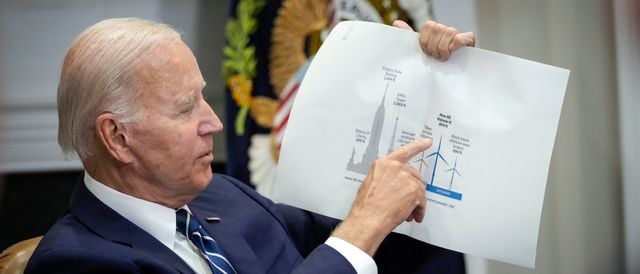Biden administration has decided to allocate a substantial $400,000 to Appalachian Voices, an environmentalist group actively involved in legal challenges against the Mountain Valley Pipeline (MVP).

Mountain Valley Pipeline: Biden Administration Allocates $400K to Environmental Activists in Battle Against Critical Gas Pipeline (Photo: CTV News)
Environmentalist Victory Funded by the Government
In a recent report published by The Daily Caller, in October 13, 2023, the Department of Energy revealed this move as part of its Buildings Upgrade Prize program, emphasizing the aim to enhance energy efficiency in existing U.S. structures. This decision raises questions about the administration’s stance on energy infrastructure projects and environmental activism, especially considering the recent legal hurdles the Mountain Valley Pipeline (MVP) faced and the involvement of key environmental organizations.
The Department of Energy’s announcement of financial support for Appalachian Voices comes on the heels of the group’s legal battle against the Mountain Valley Pipeline (MVP), where it joined forces with the Sierra Club and other environmentalists to halt the pipeline’s construction. This move sheds light on the intricate relationship between environmentalist organizations and government bodies, leaving some to question whether such financial support blurs the lines between advocacy and government action.
The Mountain Valley Pipeline has been a focal point for environmentalists, who view it as a threat to the region’s ecology. Democratic Senator Joe Manchin’s support for the pipeline further intensifies the debate, highlighting the complex interplay between political decisions, environmental concerns, and financial support.
READ ALSO: Financial Burden Persists For Retirees Despite 3.2% Social Security COLA Increase In 2024
Political Compromises and Pipeline Progress
According to the news released by the Ground News, the political landscape surrounding the Mountain Valley Pipeline took an unexpected turn when, as part of a broader compromise to raise the debt ceiling, Democrats and Republicans passed the Fiscal Responsibility Act. This legislation included provisions mandating relevant agencies to issue outstanding permits for the MVP, ensuring the project’s continuity. This issue compromise the motivations behind it, and the subsequent implications for the pipeline’s future.
As the Mountain Valley Pipeline aims to transport natural gas over 300 miles from West Virginia to the Southeast, where it will contribute to electricity generation, the political maneuvering raises questions about the balance between economic interests, environmental sustainability, and the role of governmental interventions in such projects.
READ ALSO: Department Of Treasury Internal Revenue Service Pursues $29 Billion Payment From Microsoft Despite Company’s Resistance
























